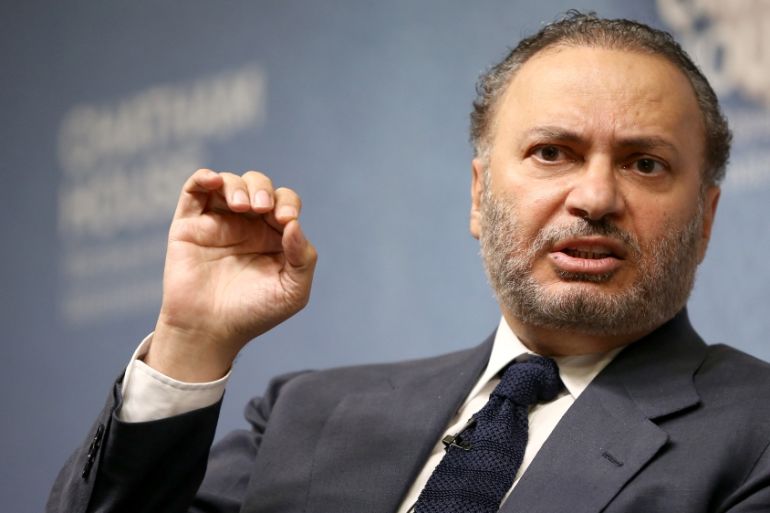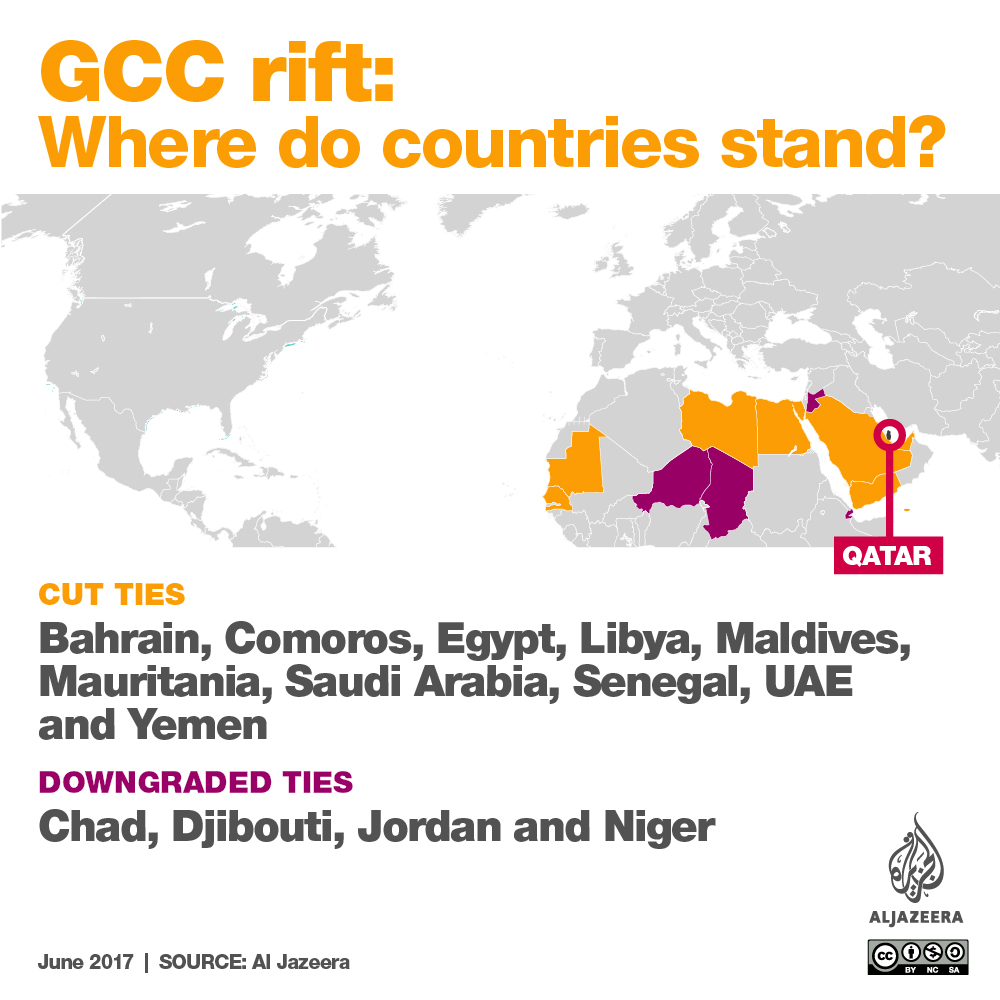Anwar Gargash: UAE not involved in Qatar hacking
Minister dismisses report his country orchestrated hacking of Qatari official news agency accounts that preceded crisis.

A UAE minister has denied his country’s involvement in the alleged hacking of Qatari official media accounts and news sites, which preceded the Qatar-Gulf diplomatic crisis.
Anwar Gargash, UAE state minister for foreign affairs, said on Monday that a report in the Washington Post newspaper suggesting that the United Arab Emirates arranged for the hacking, is “not true”.
Keep reading
list of 4 itemsQatar emir condemns ‘genocide’ in Gaza, urges ceasefire at GCC summit
‘Enduring commitment’: Key takeaways from US-GCC joint statement
Analysis: Efforts to end Assad isolation gather speed after quake
“The Washington Post story is not true, simply not true,” Gargash said.
Sheikh Tamim bin Hamad Al Thani, the Qatari emir, had been falsely quoted in May as praising Hamas, the Palestinian group which governs the Gaza Strip, and saying that Iran was an “Islamic power”.
In response, Saudi Arabia, the UAE, Egypt and Bahrain cut diplomatic and transport ties with Qatar on June 5, accusing it of supporting “terrorism”. Qatar strongly denies the allegations.
Get all the latest updates on the Qatar-Gulf crisis
Qatar said in late May that hackers had posted the fake remarks by Sheikh Tamim, but several Arab Gulf media outlets refused to give credence to the denial.
The Washington Post reported that US intelligence officials learned last week of newly analysed information that showed that senior UAE government officials discussed the planned hacking on May 23, the day before it occurred.
The officials said it was unclear if the UAE hacked the websites or paid for it to be carried out, the newspaper reported.
The report did not identify the intelligence officials it spoke to for the report.
UAE’s denial
Yousef al-Otaiba, UAE’s ambassador to the United States, rejected the hack accusation in a statement, saying it was “false,” the Washington Post said.
“What is true is Qatar’s behaviour. Funding, supporting, and enabling extremists from the Taliban to Hamas and Gaddafi. Inciting violence, encouraging radicalisation, and undermining the stability of its neighbours,” Otaiba’s statement said.
The FBI was previously known to be working with Qatar to investigate the hacking.
The US state department has not officially responded to the Washington Post’s report.
OPINION: The Gulf crisis – Royal ambitions and shaky alliances
Gargash also said on Monday that the UAE would not escalate the blockade on Qatar by asking companies to choose between doing business with it or with Qatar.
Saudi Arabia, the UAE, Bahrain and Egypt imposed sanctions on Qatar on June 5, accusing it of financing armed groups and allying with Saudi Arabia’s regional rival, Iran – allegations that Qatar denied.
On June 22, the Saudi-led group issued a 13-point list of demands, including the shutdown of Al Jazeera, limiting ties with Iran and expelling Turkish troops stationed in the country, as a prerequisite to lifting the sanctions.
Qatar rejected the demands, and the countries now consider the list “null and void”.
